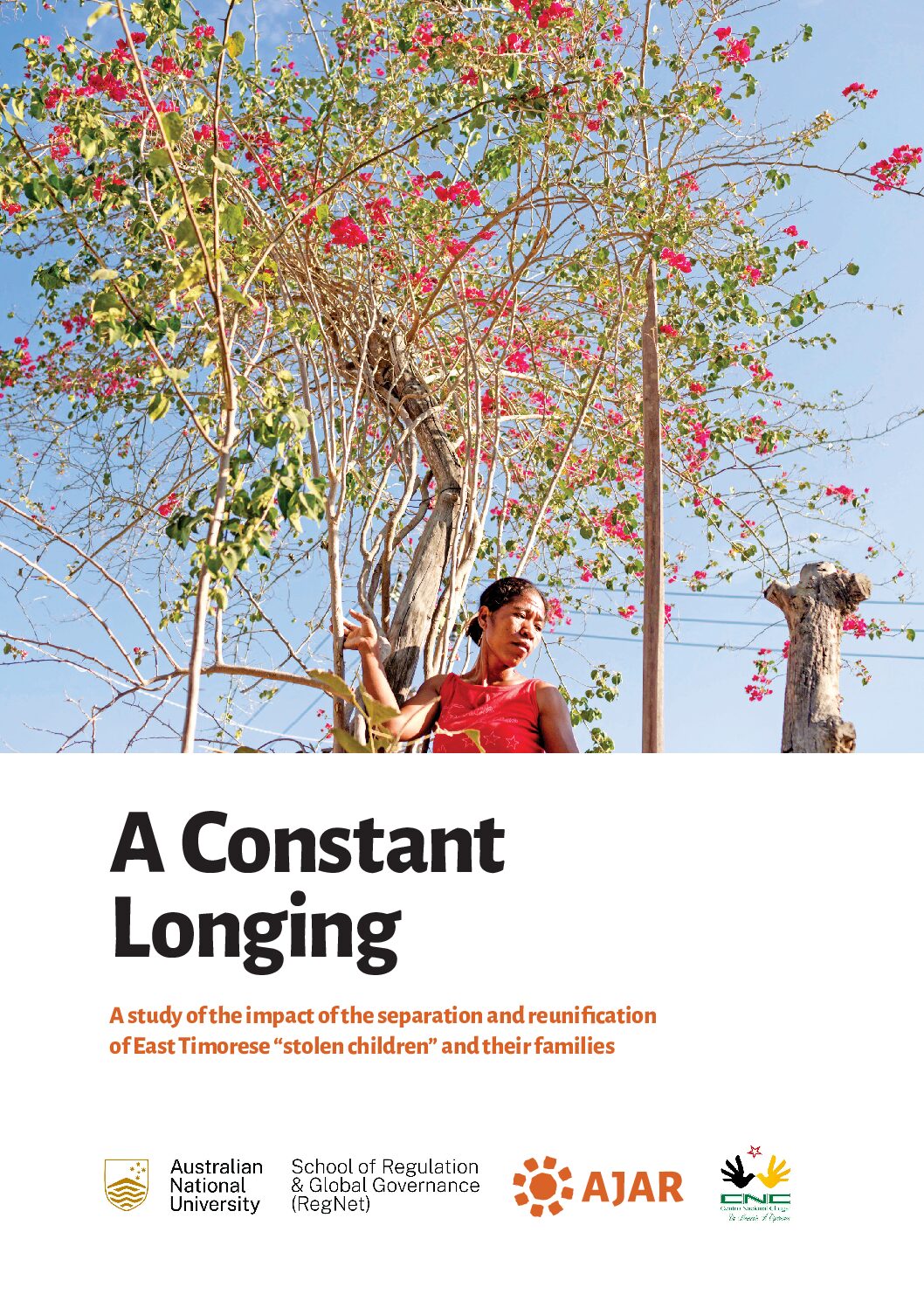Between 1975 and 1999, during the Indonesian occupation, children were abducted from their families and taken to Indonesia. Since 2013, Asia Justice and Rights, or AJAR, has led a program searching for, and reuniting, East Timorese ‘stolen children’ with their families. This work has provided important insights into the children’s lives in Indonesia, and their experiences of reunification (see AJAR 2016a). This report extends the work in two ways. Firstly, by exploring the separation and reunification experiences of stolen children and their biological families and, secondly, by providing insights into the long-term needs, following reunification, of both the children and their families.
The report is based on a collaborative study between AJAR and Dr Lia Kent of the Australian National University.The exploratory, qualitative research was carried out in July 2023 in Bali and Dili, and involved semi-structured interviews and participatory ‘body mapping’ exercises with eight stolen children and their biological families.
Research findings highlighted the lasting emotional and social impacts of child separation, both for the children and their families. The findings draw attention to the value of reunions and the long-term complex implications they pose. While overwhelmingly welcomed by both the children and their families, the reunions are only the beginning of a process of rebuilding relationships, raising difficult issues, including language and cultural communications, disrupted cultural responsibilities, economic resources needed for future visits and, for the children, a profound sense of divided identity.
We urge both the Timor-Leste and Indonesian governments to recognise the value of the reunion program, and to provide additional support for efforts to search for, and reunite, these now adult children and their families. For example, more flexible visa and citizenship arrangements, as well as financial and language learning assistance would greatly facilitate regular visits, which everyone interviewed desires. We argue that the reunification program is not only important for the children and their families, but could play an important role in strengthening economic, social and cultural relations between the two countries, a priority for both governments.
